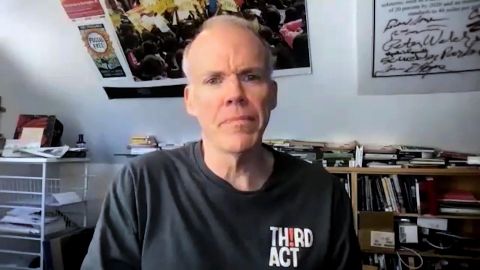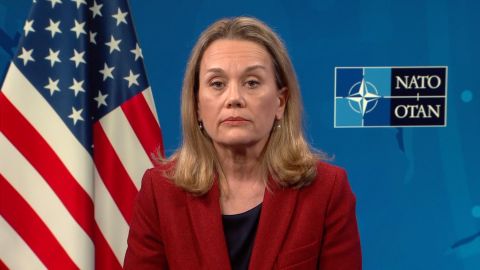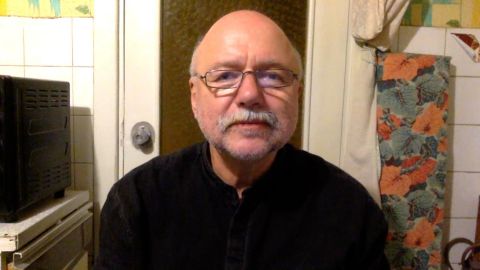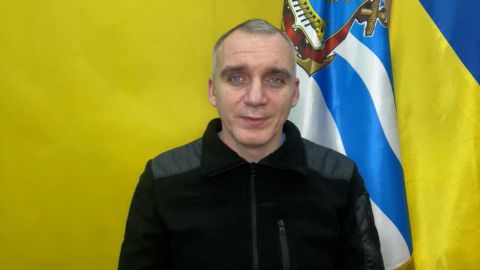Read Transcript EXPAND
CHRISTIANE AMANPOUR: Do you think or is it too early to even comment on the role of an artist in this moment in a country’s history, the role of artist in war, for instance, writers, artists, your community?
ANDREY KURKOV, UKRAINIAN NOVELIST: Well, I mean, PEN Central Ukraine has 140 members and most of them are active now as volunteers and they are helping each other. We are checking on locations of different members of PEN. And one of our colleagues is now in occupied Melitopol, and we are in touch daily with her. But, I mean, we have sad news, three Ukrainian artists, painters were killed in the last several days, and they were in territorial defense. They were not, of course, professional army people. They were just guarding or standing at the road blocks. But generally, I think the situation now is influenced in the future artistic life of Ukraine. Ukrainian leadership became very militant from 2014, from the beginning of the annexation of Crimea and the war in Donbas, and it became very politically engaged lately and I think it will become even more dynamic and people are trying to express in songs and poetry, in prose all the suffering they have and all the thoughts and all the doubts. And in this sense, I think it will have a huge impact also on European literature. It’s just like European literature after the First World War.
AMANPOUR: Yes, indeed. It’s so good to be reminded of that, and you have said you are 100 percent sure that Ukraine will survive independent and strong, you have that hope. And I just wondered whether you would react to what a survivor of the Sarajevo Siege, Aida Cerkez, who was a reporter, wrote an open letter to the Ukrainian people in part, over time, will you sing, as we did, new songs about your courage during this plight. You will recite literature not yet written and you will come up with your own slogans that will keep you alive. How do you react to that?
KURKOV: I feel — I agree with this and I feel this coming. And I see, that actually, the nation is changing in front of my eyes. People are more humane, more kind, I mean, to each other. They are helping so much. I mean, in the place where I live next to the house there are cars, private cars with nobody inside but the messages attached that, if you need to transport humanitarian aid or somebody or passenger, please call this number, and number of their mobile telephones.
AMANPOUR: It’s amazing to hear that from you. You know, you bring humanity to what’s a very dehumanizing process right now.
About This Episode EXPAND
Oleksandr Syenkevych, mayor of Mykolaiv, Ukraine, gives an update on destruction in his city. Ambassador Julianne Smith discusses NATO’s evolving plans to deter Russia. Ukrainian novelist Andrey Kurkov discusses the role of art during times of war. Bill McKibben explains how climate policy can be used to fight autocracy.
LEARN MORE



